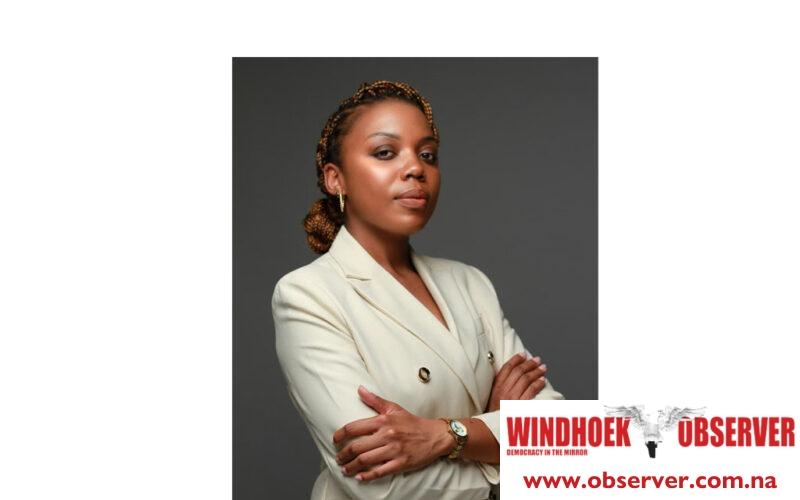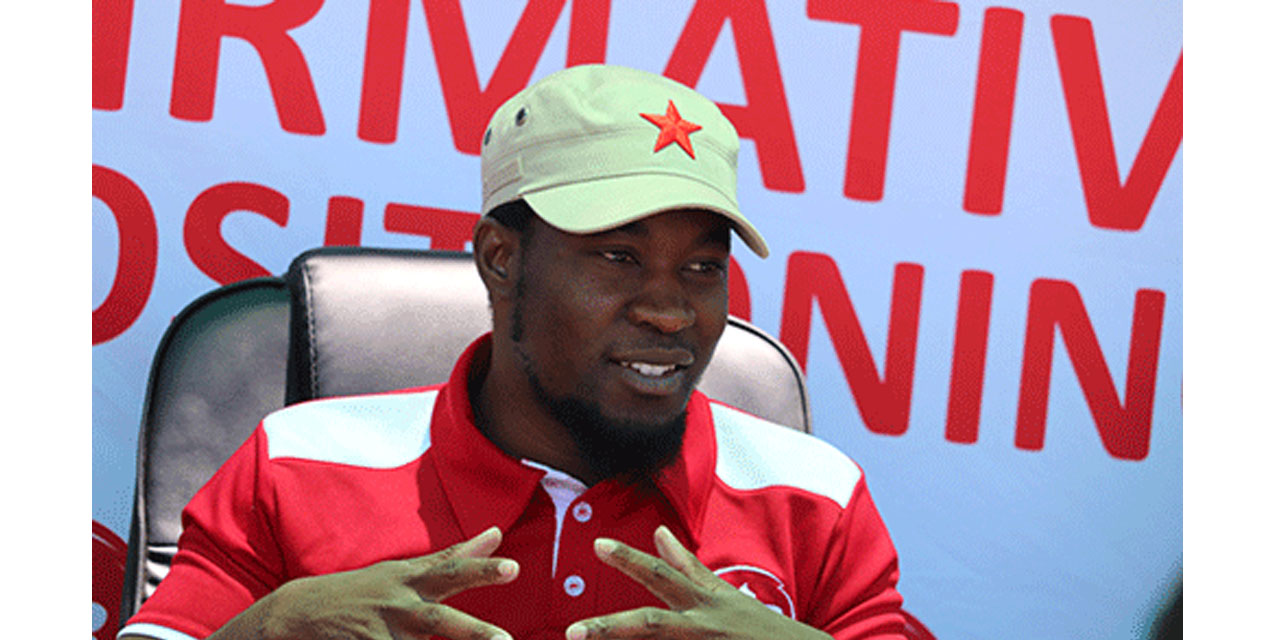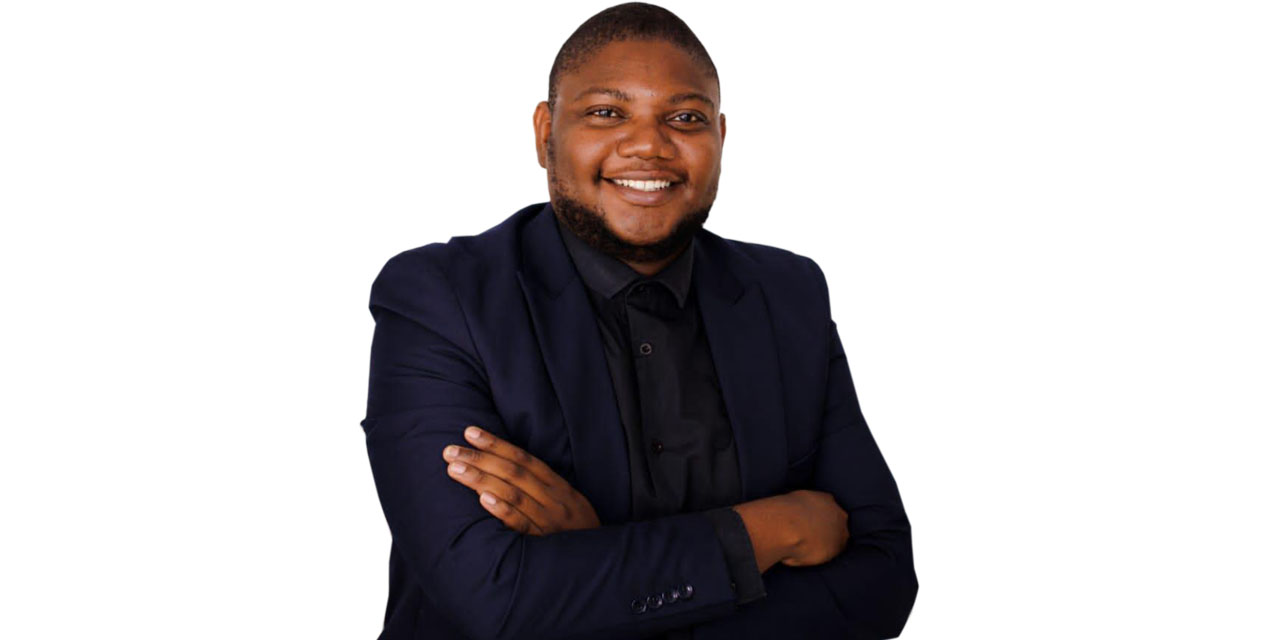Who is Esther Shakela?
Esther is a nghelo (last born) – I think this is telling of my character and personality. Yes, being a last born is a thing! I was born and raised in Ongwediva which is in the northern part of Namibia.
How has your background and upbringing influenced your personal and professional development?
My journey is a testament to the profound impact of my background and upbringing. Coming from a community that values resilience and communal well-being, I imbibed the spirit of service and determination. I was raised in a household that values education and social responsibility, so my personal and professional development has been guided by a commitment to contribute meaningfully to my community and nation. This foundation has fueled my passion for youth empowerment and advocacy, driving me to become a catalyst for positive change in Namibia and beyond.
You majored in political science. Can you tell us why you chose that particular field?
Political science, for me, is not merely a field of study but a powerful lens through which I view the world. I never miss an opportunity to bring to highlight a fundamental lesson in defining Politics, as part of the curriculum of Political Science – Politics is about who gets what, when, where and how; this therefore indicates that Politics exists around us, everywhere we are.
Choosing political science was a deliberate decision to understand the intricate dynamics of governance, policy, and the societal structures that shape our lives. I recognized the transformative potential of political science in influencing positive change, especially in the context of African governance. My academic pursuits reflect a keen desire to contribute to informed perspectives to the discourse on governance and leadership.
The above sentiments are an expression of the maturity I have gained in the field over time. Initially, I chose Political Science because I had developed an interest in the field from a younger age which was drawn from the biographies of freedom fighters that I would read and also by the love I had for History as a subject in high school.
You are currently doing an MA in Security and Strategic Studies. What does it entail and why did you choose that?
My pursuit of an MA in Security and Strategic Studies is a strategic move to deepen my understanding of the complex geopolitical landscape. This field encompasses a multifaceted exploration of security challenges, strategic decision-making, and the delicate balance between national interests and global cooperation. My choice was made with Namibia and young women in mind. By delving into security and strategic studies, equips me to play a pivotal role in shaping policies that ensure the safety and well-being of her nation and its people through the enhancement of my strategic thinking capacity and sharing that knowledge with others. A report compiled by United Nations Women (2022) showed that only 26 women Permanent Representatives have served on the Security Council between 1946 and today – isn’t that shocking? The transformation of these realities are what I want to contribute to.
Academic accomplishments seem to be a significant part of your journey. Was education always emphasized in your family?
Like I mentioned earlier, I was raised in a household that values education deeply. At some point my father would not even allow me to participate in extra-curricular activities due to a fear that it would distract me from focus all my energy on my studies. As long your academic journey was progressing positively then he was happy and he was quite strict about it too so I can confirm that academic accomplishments are a significant part of the journey. The emphasis on education in my family has not only propelled my individual success but also instilled in me a deep-seated belief in the power of education to uplift communities and nations.
How do you think your academic achievements have contributed to your current success?
My academic achievements serve as both a testament to my dedication and a powerful tool in my arsenal for effecting change. Through rigorous academic pursuits, I have acquired a nuanced understanding of political dynamics, governance, leadership and management. These intellectual foundations empower me to navigate the complexities of my work. My academic prowess equips me to make informed decisions, contribute to strategic planning, and drive initiatives that align with Namibia’s developmental objectives.
You were also active in student politics; can you share your experience?
My involvement in student politics was a transformative chapter in my journey. Admittedly, I never imagined myself being a student activist but when the opportunity to serve came and I took it, even with much contemplating, I did it with a fervent commitment to amplifying the voices of my peers. As a student leader, I often had to balance advocacy, representation, and policy engagement by engaging in what most would term ‘boardroom politics’. My experience in student politics honed my leadership skills, fostering resilience, diplomacy, and a deep understanding of the power dynamics inherent in decision-making processes. This period of active engagement laid the solid foundation for my ongoing commitment to youth empowerment and participatory governance.
You were a Global Peace Ambassador at the Global Peace Foundation. What did your position entail?
I must tell you the truth. When I applied to be selected as a Global Peace Ambassador, my main interest was to be called an ambassador; in my mind, it was an opportunity to indulge global politics as a young person. While the role itself did not deviate too much from that aspiration, it was mostly centered on fostering harmony and collaboration on a global scale. In this capacity, I played a pivotal role in promoting peace-building initiatives, intercultural understanding, and youth involvement in creating a more harmonious world. My position involved working collaboratively with diverse stakeholders, including government officials, civil society, and fellow ambassadors, to drive initiatives that transcend borders and contribute to the global pursuit of peace.
What is your personal opinion about global peace at the moment?
With my keen interests in peace advocacy, I view global peace as an ongoing collaborative effort. In the face of current contemporary challenges marred with wars and coups, I believes that fostering understanding, dialogue, and cooperation among nations is paramount. My perspective underscores the importance of youth engagement in shaping a peaceful future, where diverse voices contribute to collective solutions for the benefit of humanity.
With regard to gender and representation, do you think women are well-represented in political decision-making positions?
My perspective on gender and representation reflects a commitment to inclusivity and equality. While acknowledging progress, I recognize that there is still work to be done in ensuring adequate representation of women in political decision-making. I continuously advocate for deliberate measures to address systemic barriers, promote mentorship, and create platforms that empower women to actively participate in shaping policies that impact society at large.
Can you share your passion for writing?
My passion for writing is a creative outlet for expressing my thoughts, insights, and advocacy. It is one I cultivated when I started reading The Babysitters Club series back in primary school; the main actor, Karen kept a diary through which she informed readers about her day, family, experiences etc. I adopted a similar approach to life and kept a diary (you can only imagine the reaction to this in a black household). Little did I know that by doing so, I was sharpening a skill.
Whether through articles, essays, or speeches, I employ the power of words to inspire change, challenge perspectives, and contribute to the ongoing discourse on issues that matter to each of us thereby fostering a culture of informed dialogue and critical thinking.
When you write, it is as though you are painting on an empty canvas; the reader gives voice to the words of their own accord and creates resonance within themselves for the subject matter. That is why writing is important, it shapes, creates, heals, molds, breaks, the works! Words are incredibly powerful and this also fuels my passion for writing.
How does Esther relax?
At risk of sounding like an absolute nerd – I read. Even when I am stressed, I read. Most activities tend to make me anxious so I am still trying to discover one that is actually relaxing in the true sense of the word.




